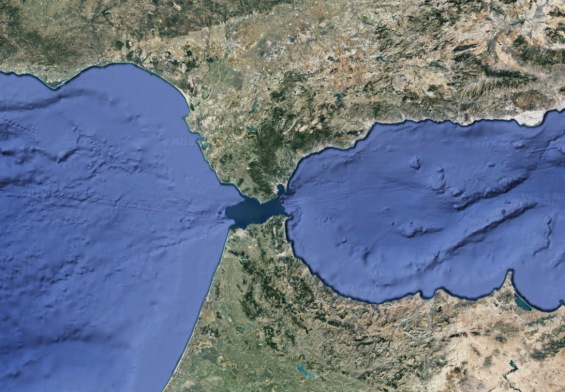The Spanish Ministry of Transportation’s company, Secegsa, responsible for the underwater tunnel project between Spain and Morocco, signed a contract this week to measure seismic risk for the first time in ten years.
According to Spanish media, Secegsa has agreed to invest around 500,000 euros to purchase seismometers, which will be deployed in the area of the Strait where the future tunnel between Europe and Africa is planned.
On November 6, Secegsa signed a contract to lease four offshore seismometers capable of operating at depths of up to 6,000 meters for six to 24 months. During the first half of the usage period, the Royal Institute and the Naval Observatory will assess the instruments’ performance before deciding to purchase them from the supplier, TEKPAM Ingeniería.
This marks the first time in ten years that Secegsa has conducted seismic risk measurements in the region. The last study, conducted in 2014, revealed a risk of earthquakes greater than magnitude 4 at depths exceeding 40 kilometers. The study, led by Elisa Bovorn, a professor of geophysics and meteorology at the Universidad Complutense de Madrid, recommended that high-intensity earthquakes be systematically studied and that a detailed investigation into earthquake depths be undertaken.
The decision follows a memorandum of understanding signed on November 3, 2023, between Secegsa and the U.S. Geological Survey (USGS), part of the U.S. Department of the Interior.
The USGS was a key element of Secegsa’s 2023 supply budget, which continues to operate thanks to increased government support from the administration of Pedro Sanchez.
In parallel with the U.S. studies, Spain's socialist government has entrusted the public engineering company Ineco with preparing a preliminary draft for potential work by mid-2026.
Over the past two years, the Spanish government has allocated approximately €2.8 million in subsidies to Secegsa, with an additional €1 million from European funds before June 2026.
The first meeting of the Spanish-Moroccan Joint Commission, held in early 2023, was the first since October 2009. Several meetings have taken place since 1979, with tens of millions invested, but no implementation plan has yet been realized.
The initiative is expected to be largely funded by public institutions, both European and African, as a non-profit project in the short term. Current estimates suggest the project will cost between 5 and 10 billion euros.




 chargement...
chargement...












